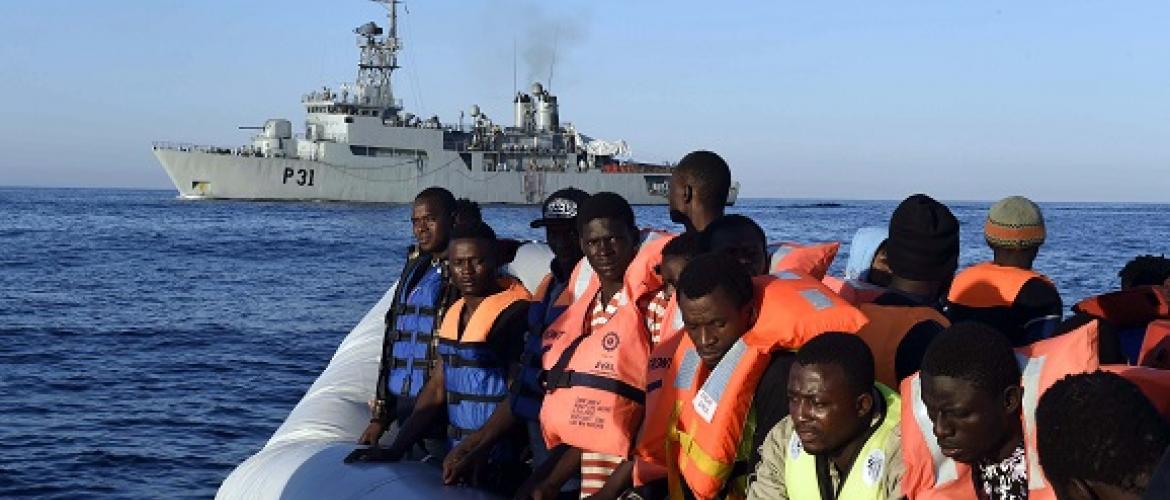Migrants hijack oil tanker
April 1, 2019 | Expert Insights

A Turkish oil tanker was hijacked by migrants amidst rising anti-immigrant, nationalist sentiments in Europe.
Background
The European migrant crisis is a part of a pattern of increased immigration to Europe, including asylum seekers and economic migrants. Most migrants make a treacherous journey across the Mediterranean Sea or use the land route through Southeast Europe. Most migrants come from Muslim-majority countries.
In 2015 alone, more than a million migrants and refugees crossed into Europe, although migration has dropped sharply since then. A number of countries in the continent struggled to handle the influx of people entering their territories. Countries within the European Union (EU) have had disagreements over how best to deal with the problem while also helping those seeking refuge. Populist politics has gripped the continent, with democracies succumbing to the pressure of anti-immigrant, nationalist groups. Many Central European countries have rejected an EU scheme to host 16,000 refugees. These countries were criticised for their internal measures which undermine not only the bloc’s refugee policy but also the principles of the Schengen Area.
Malta, an EU member and signatory of the Schengen agreement, is an archipelago in the central Mediterranean between Sicily and North Africa. In the recent past, Malta has received, on average, the highest number of asylum seekers relative to its national population. Malta has received criticism from EU partners for its reception of asylum seekers, particularly over its role as a transit country for migration towards Europe.
Analysis
A Maltese special operations unit took control of a tanker that was carrying more than 100 migrants. Authorities had said that the tanker had rescued the migrants at sea before several of them hijacked the ship and took control of the vessel. The Turkish oil tanker flying the Palau flag, El Hiblu 1, had rescued 108 people, including women, minors and toddlers.
The vessel had been heading towards Italy’s Lampedusa island, which its southernmost, before Maltese forces intercepted it and began direct communication with the captain. The captain told Maltese forces that he was not in control of the ship and that he was being forced towards Malta by a number of migrants.
Italy’s incumbent government has taken a hard-line position against immigration, with the interior minister, Matteo Salvini describing the incident as “the first act of piracy on the high seas with migrants.” Mr. Salvini said the ship would not be allowed to dock in Italy and praised Malta’s actions. Italy and Malta have stood together in their position to refuse docking permissions to humanitarian ships that reduce migrants at sea. The issue has resulted in increased tensions within the EU over who will accommodate the migrants.
Increased backlash within the EU over its migrant policies has led to decreased efforts in the Mediterranean to rescue those who set out from Africa’s northern coasts. During the migrant hey-day of 2015, EU nations operated military ships, humanitarian vessels and other efforts in order to reduce as many migrants making the hazardous journey across the Mediterranean. However, the backlash has meant the withdrawal of ships as well as restrictions on humanitarian efforts, while air surveillance has stepped-up. A researcher for Amnesty International said that these are to “alert the Libyan Coast Guard when refugees and migrants are spotted at sea so they can be taken back to Libya,” where they encounter human rights violations.
It is likely that the migrants on board El Hiblu 1, cognisant of current EU policies and fearful of being returned to where they set out from, agitated action on the ship. However, the threat perceived by piracy and hijacking, especially those on energy resources, is likely to garner significant attention, elevating the risk associated with those making the journey across the Mediterranean. Rome’s populist government, in conjunction with other populist nations of the EU, have dampened efforts by more welcoming nations. Italy’s anti-migrant stance, coupled with the lack of consensus within the EU, will mean tougher action against migrants making the Mediterranean crossing, especially given Italy’s geographical position that makes it ideal for migrants using the water route.
Assessment
Our assessment is that the position of Italy, Malta and other EU nations exacerbates the conditions for those making the journey across the Mediterranean Sea. We believe that the portrayal of the recent hijacking as an act of piracy brings renewed attention towards securing Europe against immigration. We believe that cooperating with Libyan authorities bring ethical consideration that is not in line with the EU’s stated values of human rights and dignity.
Image Courtesy: https://upload.wikimedia.org/wikipedia/commons/0/0f/P31_L.%C3%89._Eithne_Operations_28_June_2015.jpg, Irish Defence Forces from Ireland [CC BY 2.0 (https://creativecommons.org/licenses/by/2.0)]








Comments